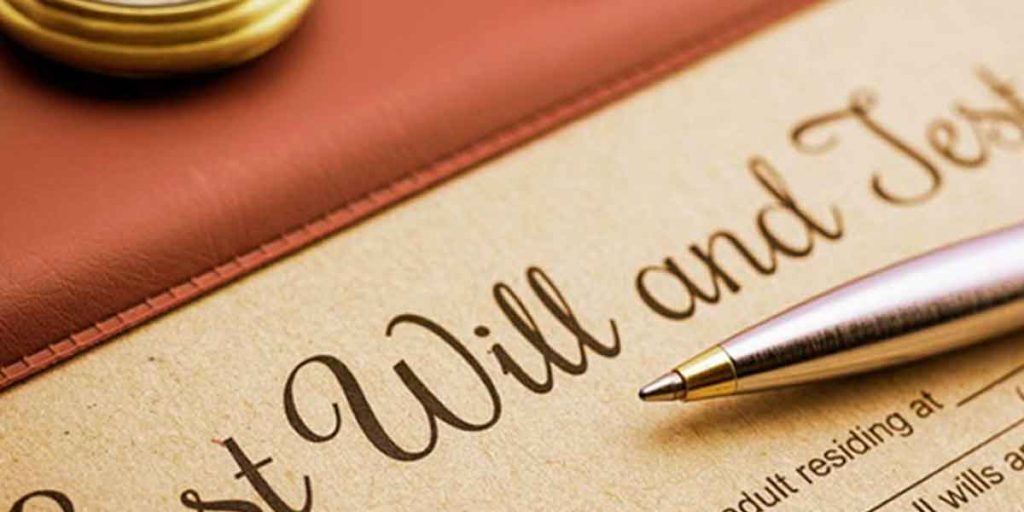What is estate planning?
Estate planning isn’t just for people with a lot of land or wealth. It’s all about making sure that if something happens to you, your family won’t be burdened by speculating on what you may have wanted. It gives them the freedom to grieve and the comfort of knowing they’re honoring your wishes. Having a plan for your estate, your home, your money, and your possessions, this means you can continue to help your family reach goals you set together, even after you’re gone.
Your advisor will help you look at your investments, insurance policies, savings, and overall goals so you can create a plan designed to set your family up for financial success in the event of your passing.
How estate planning works with your financial plan
Of course, there’s your will — a set of instructions that tells your family who should get what and can name a guardian for any of your children under 18 years old (if necessary). You should create documents to designate who should make financial and medical decisions if you can’t make them yourself. But that’s just part of it.
Your Northwestern Mutual advisor can help you coordinate your estate plan with your other advisors like attorneys, accountants, and tax professionals to do things like set up trusts, minimize estate taxes and administrative costs, protect your estate from mismanagement, and more. You can even talk with them about how to minimize taxes paid on the inheritance you leave behind.
Estate planning can help you
- Set up trusts for your kids.
- Divide up property.
- Direct charitable donations.
- Reduce your estate’s administrative costs.
- Eliminate or reduce gift and estate taxes.
- Protect your estate from mismanagement.
- Protect your estate from the claims of creditors and exes.
Reasons/Importance of Estate Planning.
An Estate Plan Protects Beneficiaries
If estate planning was once considered something that only high net worth individuals needed, that’s changed. Nowadays many middle-class families need to plan for when something happens to a family’s breadwinner (or breadwinners). After all, you don’t have to be super-rich to do well in the stock market or real estate, both of which produce assets that you’ll want to pass on to your heirs. Even if you’re only leaving behind a second home, if you don’t decide who receives the property when you pass away you won’t have any control over what happens to it.
An Estate Plan Protects Young Children
Nobody thinks of dying young, but if you’re the parent of small children, you need to prepare for the unthinkable. This is where the will portion of an estate plan comes in; to ensure that your children are cared for in a manner of which you approve, you’ll want to name their guardians in the event that both parents die before the kids turn 18. Without a will that names these guardians, the courts will step in to decide who will raise your children.
An Estate Plan Spares Heirs a Big Tax Bite
Estate planning is all about protecting your loved ones, which means in part giving them protection from the Internal Revenue Service (IRS). Essential to estate planning is transferring assets to heirs with an eye toward creating the smallest possible tax burden for them. Even just a bit of estate planning can enable couples to reduce much or even all of their federal and state estate taxes and state inheritance taxes.
sibling may think they should be in charge of the finances even though they’re notorious for racking up debt. Such squabbling can get ugly and end up in court, with family members pitted against one another.
What is a Will?
A will is simply a document stating the intentions of a testator on how his/her estate should be administered or managed in the event of his/her demise. A testator usually appoints an individual or company to execute the Will.
Requirements for a valid Will
- It must be in writing. It can be in any language and does not necessarily need to be in English.
- The person making the Will must be of legal age. The Wills Act states 21 years as the legal age, but the Wills Laws of most states in Nigeria provide for 18 years.
- The Will must be signed by the testator or any person directed by him/her and in his/her presence.
- The signature of the testator must be made or acknowledged in the presence of two witnesses, who must be present at the same time. A witness should not be a beneficiary under the will, because they will lose any benefit given under a Will they witness to.
- The person making the will must have the requisite capacity to make the will. The testator must have the mental capacity to understand the nature of what a will is and that he his disposing off his property.
Content of a Will
- Personal information of the testator, include name, address, occupation etc
- Personal information of the beneficiaries, includes name and address
- Detailed information on assets to be disposed of under the will
- Appointment of executor of the will, and trustees where it is required.
- Appointment of a Guardian for beneficiaries who are minors.
- Making arrangements as to burial of the testator etc.
Benefits of making a Will
A will which is properly drafted provides the appropriate protection to beneficiaries and gives the testator ease of mind in the conduct of his/her affairs after his/her demise. Some benefits include:
Ensure that wishes are followed
If a person dies without a Will, his estate will be administered according to intestacy law (customary). Given that some customary rules are archaic, a person’s estate might be administered in an entirely different way from what they envisaged.
Prevent Litigation
Preparing a Will helps to prevent dispute that might arise between family members on how an individual’s property should be administered after his/her death.
Get Help
If you would like to learn more about the necessity of estate planning, any one of our estate planning attorneys would be happy to assist you.







